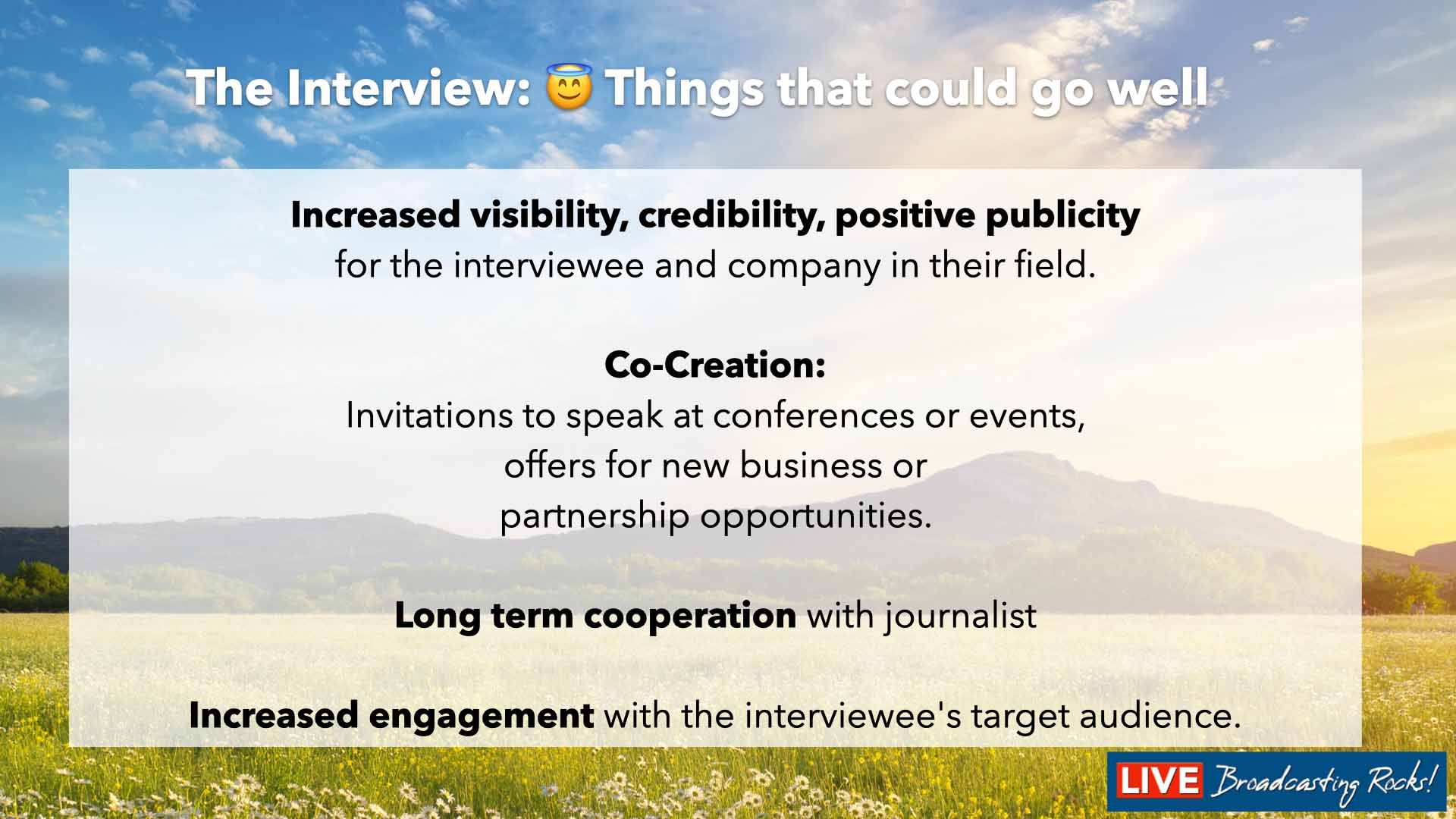In today’s fast-paced business world, effective communication is crucial for the success of companies and their executives. Especially for managers and company leaders, media training plays a central role in appearing confident and delivering their messages clearly and convincingly in interviews. As a long-time journalist and communication expert, I share first-hand advice and why often only a little training can result into a quantum leap.
I tell you a secret: Rarely anybody likes to be interviewed. Why? We feel that we do not have control over it. However, real problem does not originate with the interviewers. It starts with ourselves.
Even leaders and executives tend underestimate how challenging it can be to stand in front of a camera or microphone and make clear and precise statements. They are busy with other things and dive into the conversation without proper goal and preperation. They are also unprepared for the various interview techniques and can easily find themselves in unwanted situations. An unfortunate comment or a misunderstood sentence can quickly turn into a public image disaster, seriously affecting stakeholder trust and the company’s reputation.
I worked as a financial broadcast journalist and have conducted hundreds of interviews. This helped me to gained insights into both the media’s perspective and the challenges faced by executives. Mostly just takes a bit training to appear confident and persuasive in interviews.
The risks associated with neglecting media training are significant when handling tough questions with ease. Executives may appear uncertain or defensive in interviews, raising doubts about their competence. They may react unprepared to uncomfortable questions or be trapped, leading to negative coverage and a loss of trust among customers, investors, and the public. Moreover, there is a danger that important messages are not effectively communicated, thus hindering the achievement of the company’s strategic goals.
A poorly conducted interview can pose significant risks for a journalist. Firstly, there may be legal implications if the journalist asks inappropriate or defamatory questions, potentially leading to lawsuits or legal troubles. Secondly, it can damage the journalist’s professional reputation, as a poorly managed interview might result in a loss of trust from both sources and readers. Lastly, there are personal implications, including stress and emotional toll, when interviews go awry, especially if it involves sensitive or contentious subjects. Thus, ensuring effective and ethical interviewing practices is paramount for a journalist to maintain their credibility and professional standing.
Don’t get me wrong. An interview is a fantastic opprtunity to increase visibility, a positive publicity and to co-create. It all depends on the mindset.
Often Managers and company leaders think they need to invest a lot of time into effective communication skills before being able to present themselves convincingly. As a media trainer, I always start working on the mindset before anything else. Often limiting beliefs about the own performance have to be dissolved before. After that, every interview rehearsal, the twisting of a story and optimization clear communication is just so much easier.
Are you a leader looking to excel in interviews and leave a lasting impact? Look no further! My unique media training combines the power of journalistic expertise, deep business knowledge, and my skills as a mindset coach to help you unleash your full potential.
With my specialized approach, I go beyond conventional media training. I understand the intricacies of interviews and know that success lies not only in mastering interview techniques but also in cultivating the right mindset. That’s where I come in.
By combining my journalistic background, extensive business knowledge, and expertise as a mindset coach, I empower leaders like you to exude confidence, clarity, and charisma during interviews. I delve into the core of your mindset, helping you overcome self-doubt, limiting beliefs, and fears that may hinder your performance.
Through tailored strategies and techniques, I equip you with the skills to navigate any interview with ease. From delivering compelling messages to handling challenging questions, you’ll develop the art of persuasive communication that leaves a lasting impact.
Imagine stepping into an interview with unwavering confidence, seamlessly articulating your ideas, and leaving a remarkable impression on both the audience and stakeholders. That’s the transformation I can help you achieve.
Don’t settle for mediocrity in interviews. Invest in yourself and unlock your interview success. Gain a competitive edge by leveraging my unique blend of journalistic expertise, business knowledge, and mindset coaching. Together, we’ll elevate your presence, boost your confidence, and ensure your message resonates long after the interview ends.
Ready to make a lasting impression? Reach out to me today and embark on a journey toward interview excellence and personal growth.
About the author
Dr. Daniel Schwenger has a background in marketing, communication, and journalism, and he loves to give visibility to people and their ideas through social media, videos, and podcasts. He has worked in marketing for international companies and digital agencies, specializing in paid search and social, search engine optimization, and marketing automation. Since 2021, he has been starting his own consulting company helping leaders with video and audio production and training.
On the other hand, there are numerous benefits that come with professional mediatraining. Managers and company leaders who improve their interview techniques are able to present themselves confidently and convincingly, even in challenging situations. They can deliver their messages clearly and precisely, resulting in positive media coverage and a stronger image for themselves and their company. Mediatraining helps them optimize their communication strategies to effectively reach their goals and strengthen relationships with key stakeholders.





